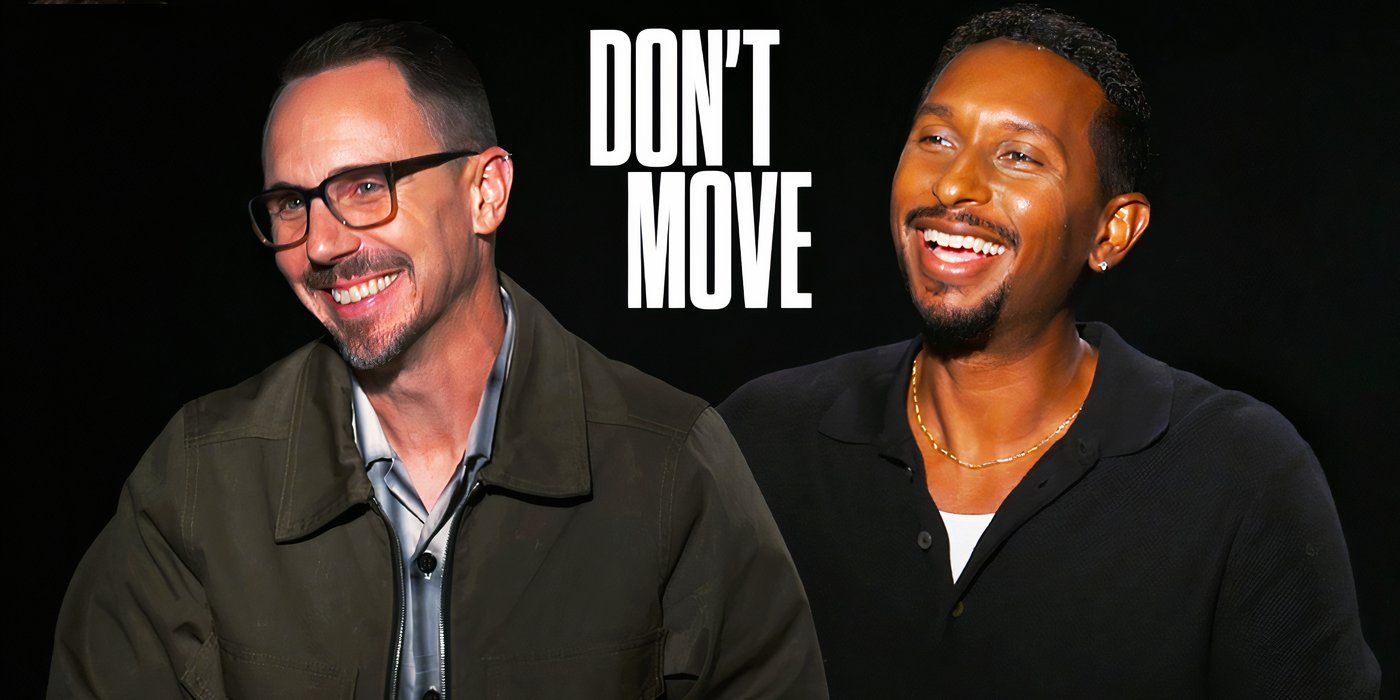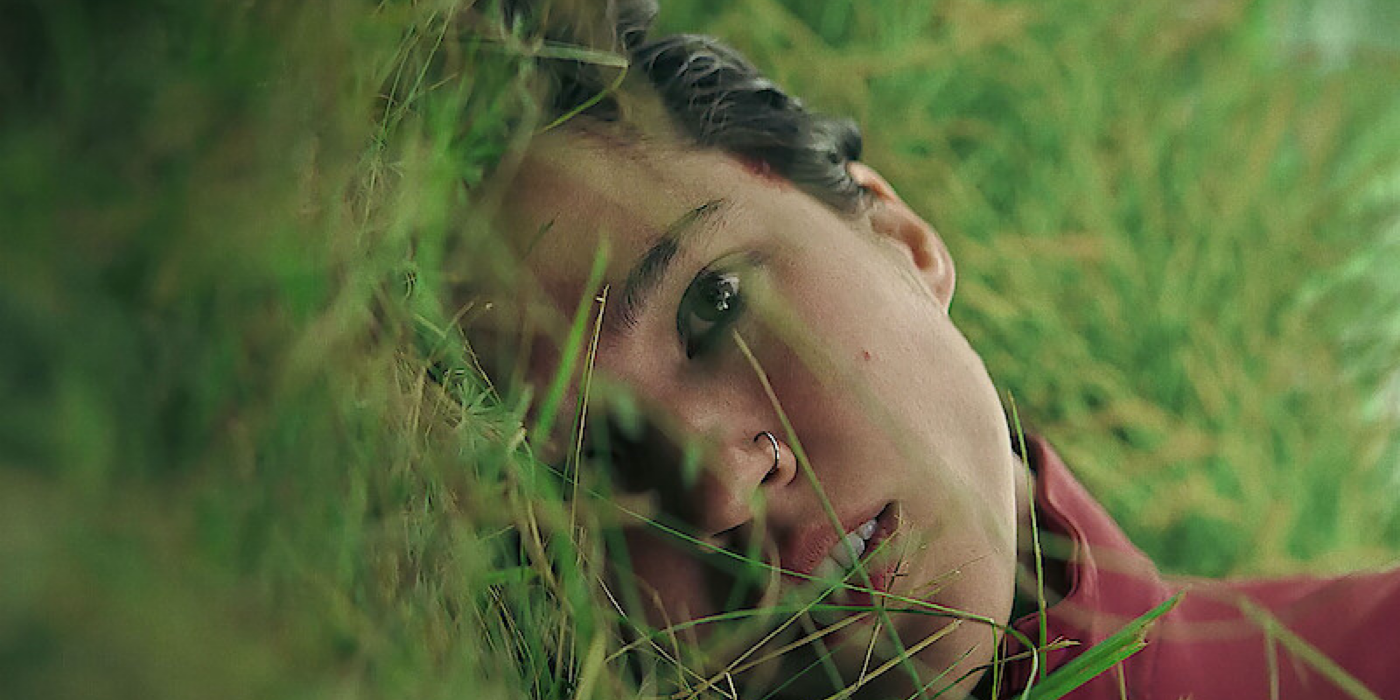Warning: The following contains SPOILERS for Don’t Move!As the movie finally arrives on Netflix, Don’t Move‘s stars, directors and producer Sam Raimi unpack Iris’ final “Thank you” and what it really means. Directed by Adam Schindler and Brian Netto, the Netflix thriller Don’t Move stars Kelsey Asbille in the lead role of a grieving mother, Iris, who runs into a serial killer, Richard (Finn Wittrock), in the forest while seeking solace, in which he injects her with a paralytic drug to immobilize her. In the 20 minutes before the drug takes its full effect, Iris has to overcome her killer.
In breaking down the movie’s ending, Asbille told TUDUM that while trying to overcome Richard, “there’s a moment when Iris chooses to live, not just survive.” With the film depicting the journey of Iris from being “someone who was hopeless” to “someone who had hope again,” Raimi explained that after having successfully overcome her killer, Iris was thanking Richard for “inspiring [her] to live again,” which co-director Netto stressed was a “genuine realization” on Iris’ part while also putting Richard in his place. Check out what the group said below:
Asbille:
I believe there is a moment when Iris chooses to live, not just survive. That’s what resonated with me, fighting desperately to overcome something that has left you feeling paralyzed.Raimi:
Kelsey put her heart into the film and really made that journey of someone who was hopeless, [to] someone who had hope again. I know that because I feel very moved by the end of this film. She’s got a soul, and she knows how to give the audience a peek at it.Netto:
It’s double-edged, because she’s sticking it to him on one end, but there is some genuine realization on her part of, “Whoa, OK, I do owe this man my life because I didn’t want to fight for my life before I met him.”Raimi:
I believe the line in the finest sense of it: “Thank you for inspiring me to live again.”Wittrock:
If you’re reading it as an actor, you’re like, “OK, we’ve got to earn this ‘Thank you.'” It’s a big arc to get to the end, and so in the back of our head, I think we were both sort of like, “We have to get to a place at the end of the movie where this line is believable.”Schindler:
The realization on his face when she says his words back to her, is one of my favorite parts of the movie. It’s just like, “What? I can’t believe this is happening.”
Iris Immobilizes Herself In The Film
In the same interview, Asbille also talked about how she saw the film as a metaphorical “conversation” that Iris has with herself about “the will to live.” Iris begins the film feeling hopeless, but through the interaction with Richard and his trying to kill her, she finds her desire to live. While the “thank you” at the end of Don’t Look may initially seem that Iris is distant and vengeful, it’s really an indicator of the change that’s happening within her, as she’s no longer lost, but has instead found her will to live.

Related
Don’t Move Directors Praise Sam Raimi As Producer & Collaborator
Don’t Move directors Brian Netto and Adam Schindler discuss their experience working with Sam Raimi and recall star Kelsey Asbille’s killer instincts.
Their comments amplify Don’t Move‘s theme of hope and resilience, shedding light on the deeper meaning of Iris’ journey, which is that she doesn’t just overcome a serial killer, but she’s also ready to go back to live her life. Iris’ gratitude for the man who tried to kill her signals the foundational change that has taken place and marks the completion of her journey. It suggests that instead of trying to focus on the external tragedies, she’s turning her eyes toward within.
Our Take on Don’t Move Ending
It’s More Of A Beginning
It makes sense why the Sam Raimi-produced thriller is so highly rated. While Richard has gone through a similar tragedy as Iris, he turns into a serial killer. The shock on Richard’s face suggests that he genuinely doesn’t understand what Iris was going through, which shows their differences, as Richard is the one who’s truly paralyzed. He’s been reliving the same pain and tragedy while inflicting them on others, because he can’t escape from it.
Unlike Richard, Iris has found her way out at the end of Don’t Move, and she wouldn’t have achieved it without Richard. The “thank you” at the end of the film is a genuine moment that separates the two, as Iris’ gratitude towards Richard signals a new beginning for her rather than words to spite the man who tried to hunt her.
Source: TUDUM

